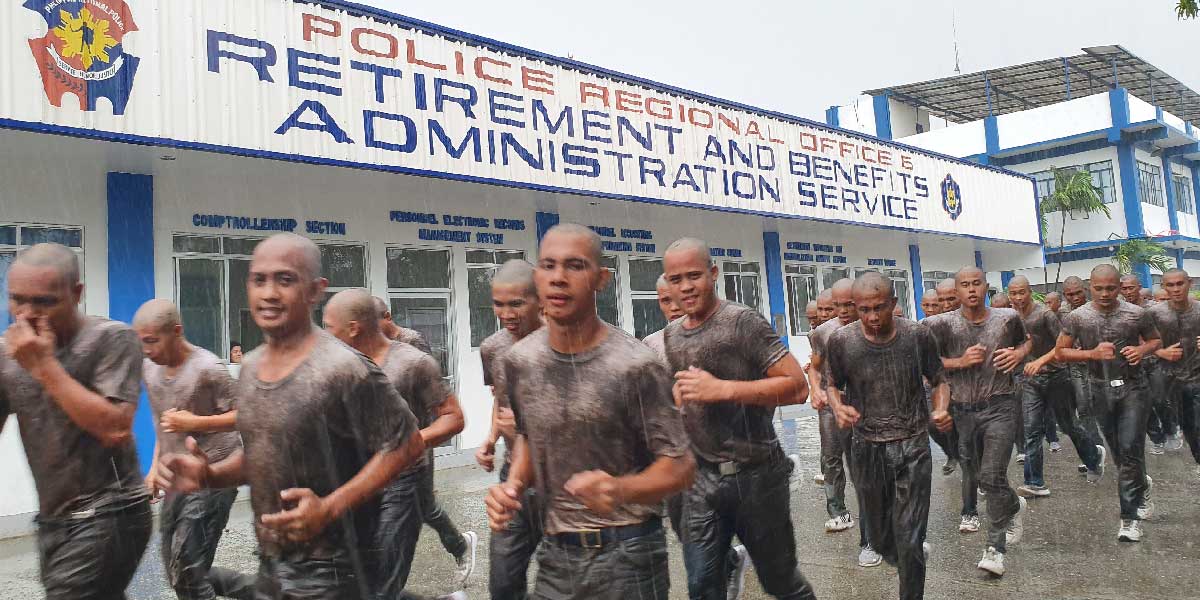
By Joseph B.A. Marzan
National Police Commission-Region 6 (NAPOLCOM-6) chief Joseph Celis on Wednesday admitted that the manner of recruitment of police officers got in the way of developing the quality of PNP personnel.
Celis made the assement in the wake of the shooting to death of a 52-year-old female in Quezon City by a police officer.
Police Master Sergeant Hensie Zinampan was caught on video pulling the hair and shooting dead Lilybeth Valdez at a store in Fairview, Quezon City at around 9 p.m. on May 31 2021.
Zinampan was arrested on June 1 and turned over to the Criminal Investigation and Detection Unit of the Quezon City Police District, according to a Rappler report.
Based on a video from the Philippine National Police’s (PNP) official social media accounts, police chief Guillermo Eleazar verbally reprimanded Zinampan and also ordered the filing of criminal and administrative cases against him.
The incident happened a week after 18-year-old Edwin Arnigo was shot dead by an unnamed police officer after being arrested for alleged illegal cockfighting in Valenzuela City on May 24.
The incident also recalled the December 2020 shooting of 52-year-old Sonya and 25-year-old Frank Gregorio in Tarlac by Sergeant Jonel Nuezca, who is currently detained for double murder.
In an interview with Aksyon Radyo Iloilo Wednesday, Celis said the behavior of erring police officers, despite their benefits and privileges, was an “effect” of the recruitment system’s aim to beef up the numbers to catch up with the cop to population ratio.
He shared his observation that many police candidates did not know basic courtesy and respect, which he said was essential to members of the police force.
According to a 2018 PNP primer, aside from the base pay, uniformed personnel may also be entitled to longevity pay, regular allowances, gratuities, collateral pay and allowances and other benefits, and other financial benefits.
“This is an effect of the campaign of our system where we continuously recruit many [police members] to cope with the ratio of police to the population but sacrificing the quality. It’s difficult, especially towards the youth who lack exposure and only see taking arms and drastic changes in their lifestyle. There are those who have good family orientation but are poor who excel, but the problem here are those who think that it’s easy to enter,” Celis said.
He emphasized that a police candidate’s background, when combined with their training, would manifest their personality as a law-enforcement official, citing Zinampan’s shooting and his eventual reprimanding by Eleazar.
Celis said Eleazar could have done worse to Zinampan but the latter held back.
“If they have a good mindset, then they would have good orientation. There are many factors to consider, from the background of the applicant, when you merge them altogether, the end-result product will be their personality when it comes to law enforcement. What happened here, where [Zinampan] was being reprimanded by [Eleazar], it’s still lacking but the PNP chief knows his limitations. The proportion of [Zinampan’s] behavior is extremely disproportionate to what he (Eleazar) had done,” he said.
Celis also opined that the evidence against Zinampan in the incident would be overwhelming enough to back the charges against him.
Section 1, Rule 11 of the Rules on Electronic Evidence issued by the Supreme Court in 2001 state that video evidence of events shall be admissible provided that it shall be presented to the court and identified by the person who made the recording.
“It will go through a process, but there is very overwhelming evidence. It was him who was seen in all pictures within the video. Video evidence may be allowed so long as it is credible. There are also many witnesses from [Valdez’s] family. It will depend on how the court appreciates that,” the NAPOLCOM-6 chief said.




















